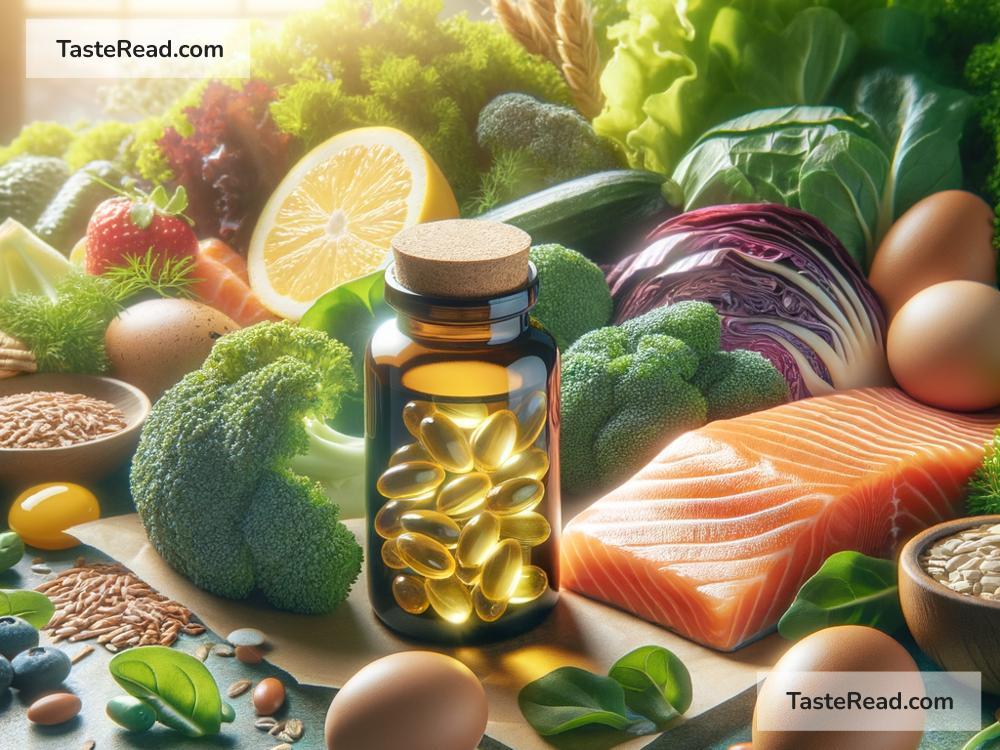The Role of Vitamin B91 in Metabolic Health: What You Need to Know
If you’ve ever researched vitamins, you’ve probably heard about common ones like Vitamin C, Vitamin D, and Vitamin B12. But have you heard about Vitamin B91? Probably not! That’s because Vitamin B91 isn’t a recognized or real vitamin. While it sounds like something scientific, it turns out that there is no such thing as Vitamin B91 in the world of nutrition.
Although Vitamin B91 doesn’t exist, the topic of vitamins and their role in metabolic health is still very important—especially the actual B vitamins that are vital for maintaining a healthy body. So, rather than focusing on Vitamin B91, let’s talk about how B vitamins, in general, support your metabolism and keep you energized. We’ll break it down in simple terms, so everyone can understand.
What Is Metabolic Health?
Before we dive into vitamins, let’s talk about metabolism. Simply put, your metabolism is the process your body uses to turn the food you eat into energy. This energy is what powers everything you do, from walking and thinking to breathing and growing.
When people talk about “metabolic health,” they mean how efficiently your body can carry out these processes. Good metabolic health means your body is able to process nutrients from food and turn them into energy without problems like high blood sugar, inflammation, or weight issues.
The Real Role of B Vitamins in Metabolism
Thankfully, there are real B vitamins that play a critical role in supporting metabolic health. These include B1 (thiamine), B2 (riboflavin), B3 (niacin), B6 (pyridoxine), B9 (folate), and B12 (cobalamin), among others. Each of these vitamins helps your body convert food into fuel and perform other important functions.
Here’s a simple overview of how they work:
1. Vitamin B1 (Thiamine)
- Helps convert carbohydrates into energy.
- Supports nerve and muscle function.
2. Vitamin B2 (Riboflavin)
- Essential for breaking down proteins, fats, and carbohydrates.
- Acts as an antioxidant to protect your cells from damage.
3. Vitamin B3 (Niacin)
- Aids in releasing energy stored in food.
- Boosts healthy cholesterol levels and supports brain function.
4. Vitamin B6 (Pyridoxine)
- Plays a role in protein metabolism.
- Helps make neurotransmitters—chemicals that send messages in your brain.
5. Vitamin B9 (Folate)
- Key for DNA production and cell growth.
- Vital for pregnant women to support healthy development in their babies.
6. Vitamin B12 (Cobalamin)
- Helps your body produce red blood cells and maintain nerve health.
- Supports critical functions like energy production and brain health.
Why Are B Vitamins Important for Your Metabolism?
Your metabolism relies heavily on enzymes to break down food into usable energy. B vitamins act as helpers (coenzymes) to make this process efficient. Without enough B vitamins, your body might struggle to process food properly, leaving you feeling tired, sluggish, or even developing serious health problems over time.
For example:
– Low B12 can lead to anemia, where your body doesn’t have enough healthy red blood cells to carry oxygen.
– Low B1 can cause nerve and muscle problems.
– Low B6 can lead to mood disorders due to its role in producing brain chemicals like serotonin.
How to Get Enough B Vitamins
Luckily, B vitamins can be found in a wide variety of foods. Here are some examples:
- Meat (beef, chicken, fish): Great sources of B1, B2, B6, and B12.
- Leafy Greens (spinach, kale): High in B9 (folate).
- Whole Grains (brown rice, oats): Contain B1 and B3.
- Dairy (milk, yogurt, cheese): Rich in B2 and B12.
- Eggs: Provide B2, B6, and B12.
- Beans and Lentils: Packed with B1, B3, B6, and B9.
If you follow a balanced diet, you’re likely getting enough B vitamins. However, people with specific dietary restrictions—like vegans—may need to take supplements, especially for Vitamin B12, which is mostly found in animal-based foods.
Signs You Might Be Missing B Vitamins
How can you tell if you’re not getting enough B vitamins? Some common warning signs include:
– Feeling tired or weak all the time.
– Pale or yellowish skin.
– Trouble concentrating or remembering things.
– Tingling sensations in your hands or feet.
If you experience these symptoms, it’s a good idea to check with a doctor or nutritionist. A simple blood test can show if you’re low on any B vitamins.
The Bottom Line
While Vitamin B91 isn’t real, the actual B vitamins are essential for your metabolic health and overall well-being. They work together to help your body turn food into energy, support brain function, and keep your cells healthy.
Eating a balanced diet filled with whole grains, vegetables, dairy, meat, and legumes is the best way to ensure you get enough B vitamins. If you suspect you’re missing out, talk to a healthcare professional—your body will thank you for it!
Remember, boosting your knowledge about vitamins is an important step toward living a healthy and energetic life. And now you know: Vitamin B91 may be fictional, but real B vitamins are absolutely essential.


